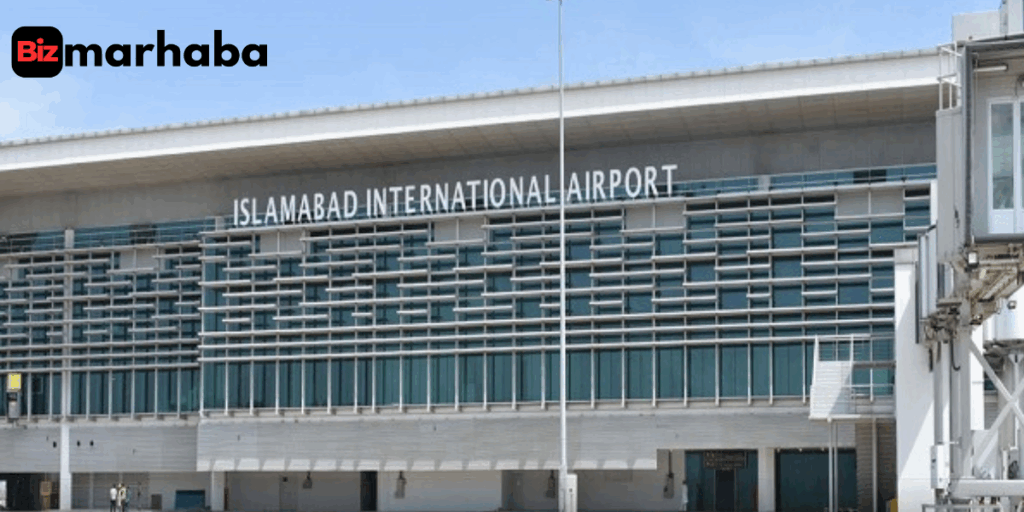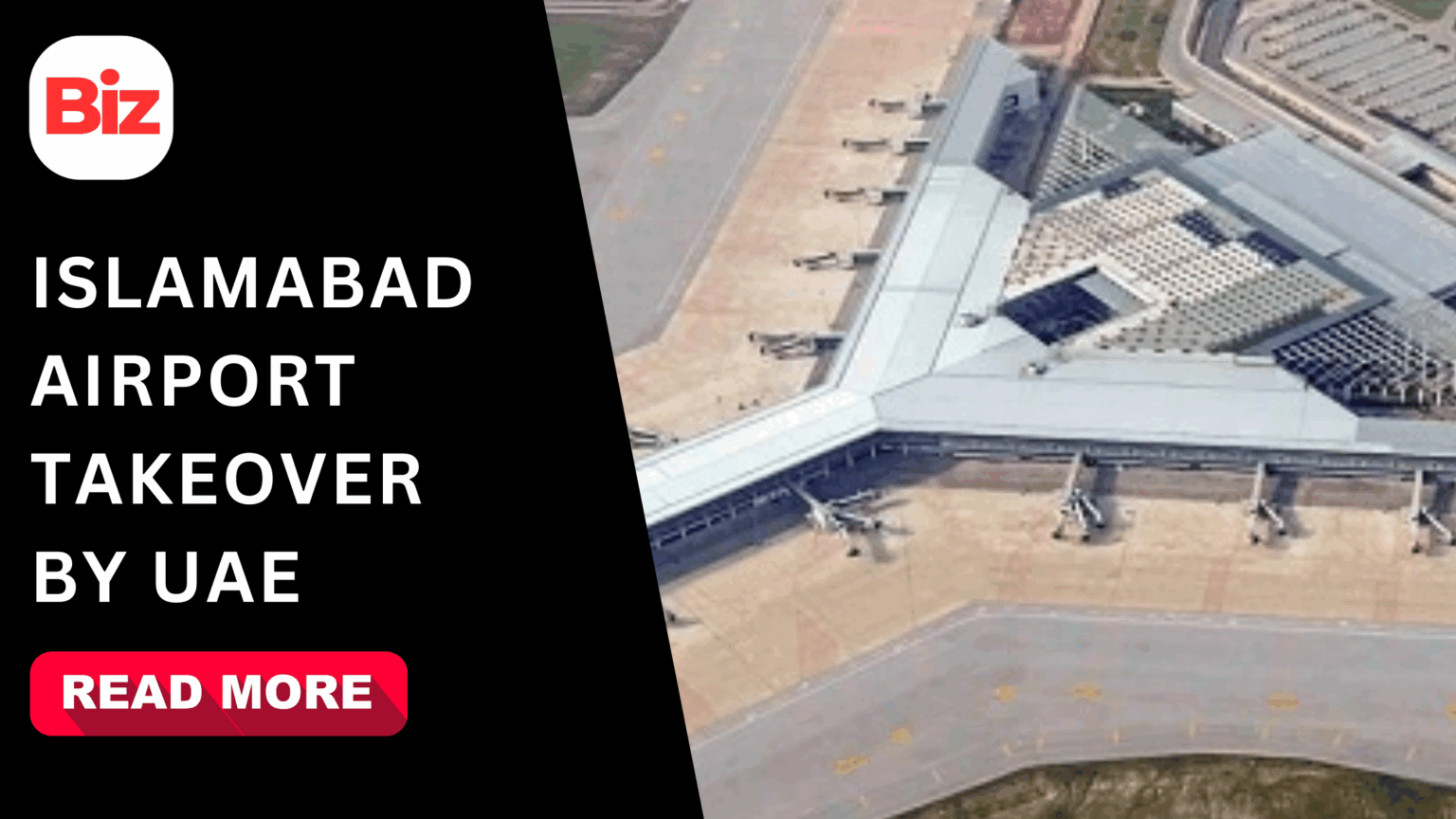Islamabad airport is entering a new chapter in it’s history. The Federal government has given a deal that will enable the United Arab Emirates (UAE) to assume the operations of Islamabad Airport. It is more than a business contract. It signals a bold shift in how Pakistan wants to manage its airports and attract foreign investment.

Government Gives the Green Light
This week, the Cabinet Committee on Inter-Governmental Commercial Transactions approved the deal. The meeting was chaired by Deputy Prime Minister Ishaq Dar. Instead, Pakistan opted to adopt a government-to-government (G2G) model, and this implies that the deal was struck directly with the UAE without external competition.
A special negotiation team will now finalize the terms. It includes officials from the prime minister’s office and representatives from defence, finance, law, and privatisation ministries. Their job is to secure the agreement while safeguarding Pakistan’s national interest.
Why Islamabad Airport Was Chosen
The Islamabad Airport opened in 2018 after heavy investment. Built to handle around 15 million passengers annually, it was seen as a modern gateway for the country. But in practice, it has struggled. High costs, poor governance, and limited efficiency turned it into a loss-making project.
The government believes the UAE, with its track record in managing top-class hubs, can turn things around. By outsourcing operations, Pakistan expects better services, stronger finances, and more credibility in the global aviation market.
UAE’s Experience Brings Weight
The UAE is no stranger to airport management. Dubai International Airport and Abu Dhabi Airport rank among the busiest and best-run facilities worldwide. Their operators know how to handle large passenger volumes, modern security systems, and smooth logistics.
By bringing this expertise to Pakistan, the UAE is not only expanding its footprint but also making Islamabad a stronger regional hub. For Pakistan, it’s a chance to modernize without carrying the heavy operational burden alone.
What Travelers Can Expect
For passengers, the change could mean visible improvements. Travelers may experience faster check-ins, smoother boarding, better lounges, and reliable baggage handling. Small details like clean facilities and quicker services can make a huge difference in how people perceive a country.
A modern and well-run Islamabad Airport will also support tourism, business travel, and international airlines looking for a stronger presence in Pakistan. The government hopes this upgrade will leave a better first impression on anyone arriving in the capital.
Part of a Bigger Aviation Plan
The shift in Islamabad is just the beginning. Officials have already hinted that if this model works, the government could open similar opportunities for Karachi Airport and Lahore Airport. These two airports are crucial gateways for Pakistan and serve millions of passengers every year.
If managed well, all three could help Pakistan compete with regional travel hubs. The idea is not just about outsourcing one airport, but about setting a new standard for the entire aviation network.
Economic and Political Benefits
On the financial side, the takeover could ease the pressure on Pakistan’s struggling aviation sector. A well-run airport generates higher revenues through better passenger flow, improved commercial services, and new airline partnerships.
On the political side, it strengthens ties with the UAE. Already one of Pakistan’s biggest trading partners, the Gulf nation is a key source of investment and remittances. This deal deepens that partnership and could open doors for cooperation in other sectors.
Balancing Control and Oversight
Some critics are concerned about handing over a strategic asset to a foreign country. Officials have reassured the public that Pakistan’s civil aviation authorities will continue to hold oversight. The UAE will manage operations, but regulation, security, and sovereignty will stay under Pakistan’s control.
This balance is designed to bring in expertise without compromising national interests. In practice, it means better efficiency while ensuring that Pakistan retains authority over its airports.
Looking Forward
Negotiations are still ongoing, but both governments want to move fast. If all goes smoothly, UAE’s management of Islamabad Airport could begin within a few months.
The deal is more than just an airport contract. It’s a statement. Pakistan is interested in demonstrating to the world that it is not closed to reform, serious about foreign partners, and that it is willing to upgrade its infrastructure.
Conclusion
The move to allow the UAE to run the operations of Islamabad Airport can be considered as the beginning of a new chapter. To the passengers, it will offer a better travel experience that is more reliable. To the economy, it is a move towards stability and modernization.
With future plans possibly extending to Karachi Airport and Lahore Airport, this move could reshape Pakistan’s aviation sector. If successful, Islamabad Airport will no longer be seen as a costly challenge but as a model of international collaboration and forward-looking leadership.
YOU MAY ALSO READ: AI ROBOTS AT DUBAI AIRPORT








